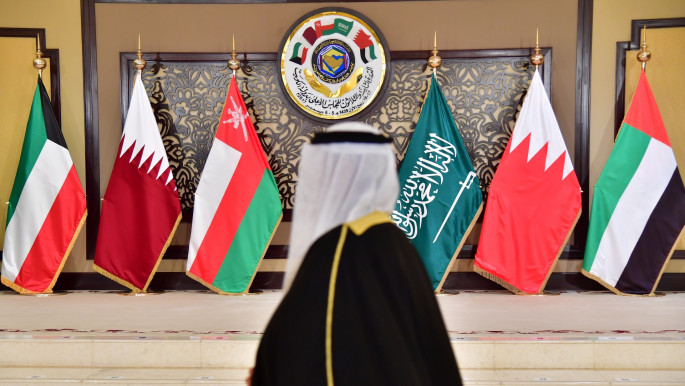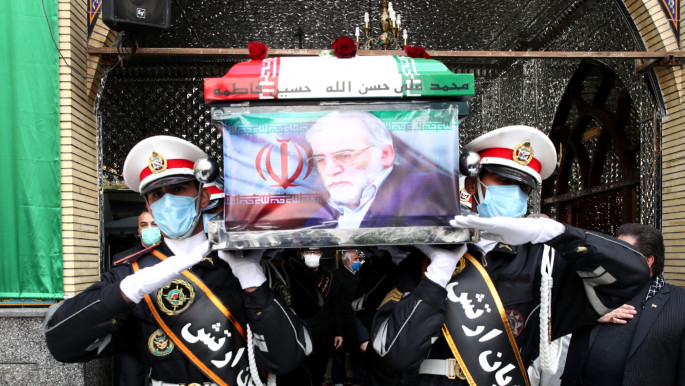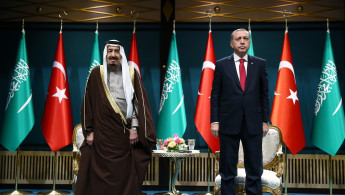What is driving Saudi Arabia's apparent rapprochement with Turkey?
Most observers paid little attention to the statement and considered it a customary measure, especially since an unofficial call to boycott Turkey's products in the desert Kingdom was at its peak at the time.
However, six days later, the Saudi Press Agency reported that King Salman had directed the King Salman Humanitarian Aid and Relief Center (KSRelief) to send "urgent aid to brothers affected in Turkey".
While the announcement came a week after the tragic earthquake, which caused an urgent humanitarian disaster, it was still a valuable gesture. One important indication that the Saudi measure was part of a broader initiative to break the ice with Turkey is that it coincided with Biden's victory in US presidential elections on 7 November.
Days later, on 12 November, Turkey's President Recep Tayyip Erdogan phoned Bahrain's King Hamad bin Isa al-Khalifa to offer his condolences over the death of Manama's longest-serving prime minister. A statement from Turkey's Directorate of Communications said Erdogan and the king discussed steps aimed at enhancing relations between the two countries.
 |
These small steps can be seen as preparation by the two states to reposition themselves in a favourable way to deal with anticipated pressure from the incoming Biden administration |  |
The statement quoted the Turkish president saying "relations based on the deep-rooted historical social and cultural ties between Turkey and Gulf countries would contribute positively to the solution of many shared issues the region faces".
Bahrain's diplomatic policies for the most part adhere to the Saudi line, to the extent that many question whether it has an independent foreign policy of its own. Manama is often viewed as a conduit to send and receive messages on behalf of Saudi Arabia in critical matters. In this sense, Erdogan's message might have resonated in Riyadh.
 |
|
| Read more: Behind Bahrain's gamble on normalisation with Israel |
In a rare phone call from the Saudi king to the Turkish president prior to the virtual G20 Summit in Riyadh on 21 November, both leaders agreed to keep channels of dialogue open to develop bilateral relations and eliminate problems.
Hours later, the Saudi Foreign Minister Faisal bin Farhan Al Saud told Reuters that relations with Turkey were "good and amicable," denying there was an informal boycott of Turkish products in the kingdom.
The previous phone conversation had obviously led to a series of positive developments in Saudi-Turkey relations. At the conclusion of the virtual gathering, Erdogan congratulated Saudi Arabia on the success of the G20 Summit.
Five days later, Turkey's Foreign Minister Mevlüt Çavuşoğlu met his Saudi counterpart at the 47th session of the Organization of Islamic Cooperation's (OIC) Council of Foreign Ministers to discuss bilateral relations and regional issues. Çavuşoğlu said Ankara attaches high importance to its bilateral ties with Riyadh. He asserted that the meeting was "sincere" and "a strong Turkey-Saudi partnership benefits not only our countries but the whole region".
 |
The sudden U-turn in the Saudi attitude towards Turkey is mainly linked to recent changes in US politics |  |
Saudi and Turkish motives
These small steps can be seen as preparation by the two states to reposition themselves in a favourable way to deal with anticipated pressure from the incoming Biden administration. The positive Turkish response to Riyadh's initiative asserts the existence of common interests and the mutual desire to correct the course of bilateral relations. Although the steps taken so far do not amount to a complete reconciliation, they put the two states on the right track.
As for the motives, the sudden U-turn in the Saudi attitude towards Turkey is mainly linked to recent changes in US politics. Trump and his son-in-law Jared Kushner had unique relations with Saudi officials. The outgoing US president chose Riyadh for his first foreign visit in a clear break of well-established American tradition.
He provided the green light for the king's son, Crown Prince Mohammad bin Salman (MBS), to crack down on his opponents, family members, businessmen, intellectuals and human rights activists.
Trump shielded MBS after the killing of Jamal Khashoggi and protected him from the repercussions of the Saudi journalist's murder in his country's consulate in Istanbul. He also allowed the kingdom to continue its military campaign in Yemen without constraints and sent troops to Saudi Arabia to defend it against Iranian aggression.
 |
|
| Read more: Biden as president: Winners and losers in the Gulf |
In this context, Biden will be nothing like Trump, and his incoming administration is expected to put pressure on the king and his son on issues related to internal and foreign affairs, including the Yemen war, the Gulf crisis and the Khashoggi murder, among other issues. Biden has made no secret that he will return the US to the nuclear deal with Iran.
If this happens in the Obama way, Saudi Arabia will be isolated in the region. The strong relations between MBS and the de facto ruler of the UAE, Mohammed bin Zayed (MBZ), will not be beneficial for the kingdom anymore as Abu Dhabi chose to appease Iran and publicly strengthen its relations with Israel, something that Riyadh will find hard to do.
Likewise, during his election campaign, Biden showed a hostile position towards the Turkish government. He is known for supporting the partition of Iraq in the past and Kurdish groups in Syria, including a branch of the PKK, which is designated as a terrorist group by the US, EU and NATO.
Biden also opposes the S-400 deal with Russia and most likely will not be on the same page with Turkey in the Eastern Mediterranean. Given his strong relations with the Greek, Armenian and Israeli lobbies, there is a strong perception that if he chooses to be Obama 2.0 and refuses to cooperate with Ankara on common causes, Turkey-US relations will suffer.
 |
Despite positive progress, the rapprochement between Saudi Arabia and Turkey is expected to face several challenges to moving forward |  |
Challenges to Saudi-Turkish rapprochement
Despite positive progress, the rapprochement between Saudi Arabia and Turkey is expected to face several challenges to moving forward. Two main factors in particular might affect this process. First, if the Biden administration decides to be soft on Saudi Arabia, Saudi officials might calculate that there is no need to strengthen relations with Turkey anymore, and thus keep any rapprochement between the two states at the current level.
The second potential hurdle is the UAE's position regarding the Saudi-Turkey reconciliation process. If relations between Riyadh and Ankara returned to their 2015 level, then Abu Dhabi will be the biggest loser in the new arrangement between these two regional players.
 |
|
| Read more: Fakhrizadeh's assassination: A new diplomatic obstacle for Biden's Iran policy |
Over the last four years, and while trying to move Saudi Arabia to its side, Abu Dhabi has invested a lot in its relations with Trump, MBS, and in creating a wedge between Riyadh and Ankara.
Given that Abu Dhabi is leading the anti-Turkey camp in the region, it certainly has no interest in seeing better Saudi-Turkish relations. This is why it is safe to assume that Abu Dhabi's MBZ will do whatever it takes to sabotage this process.
The Saudi decision to break the ice and begin a process of rapprochement with Turkey came from King Salman. Up until now, MBS, who is known to be MBZ's man in Saudi Arabia, is not involved in this process. The UAE's alternative offer to MBS is to push for Saudi-Israeli normalisation on the basis that Tel Aviv will provide him with the necessary cover to protect him from the expected pressure from the Biden administration, on the one hand, and to buy him influence inside the US Congress on the other.
Only a few days after the phone call between King Salman and Erdogan, the Israeli media reported that Netanyahu secretly flew to Saudi Arabia and met MBS in Neom. Saudi Arabia denied the news, but several sources confirmed it. It is not known whether MBZ played a role in setting up the meeting between MBS and Netanyahu, but the analysis suggests that the UAE had a direct interest to push for Saudi-Israeli normalisation in the face of Saudi-Turkey rapprochement.
The Biden administration's policy towards Riyadh, together with how the UAE responds, will play a major role in determining whether Turkish-Saudi reconciliation will witness continued momentum during the next phase or regress.
Ali Bakeer is an Ankara based political analyst/researcher. He holds a PhD in political science and international relations. His interests include Middle East politics with a particular focus on Iran, GCC countries and Turkey.
Follow him on Twitter: @alibakeer



